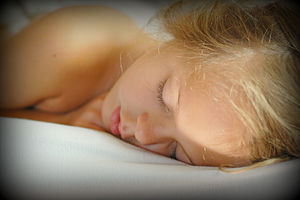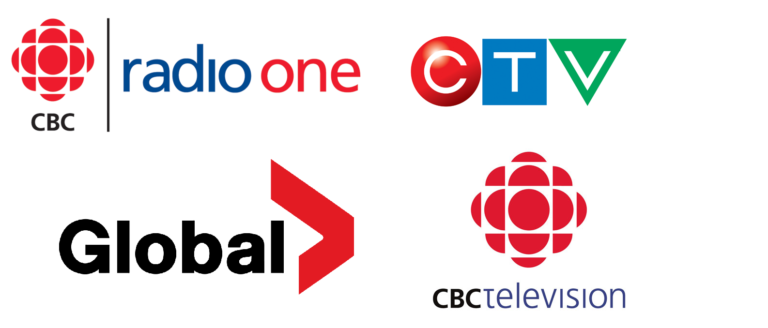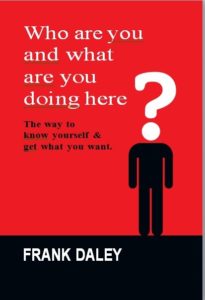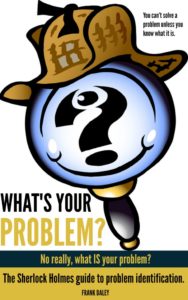GET SOME F**KING SLEEP!
I think many people say that to themselves!
70% of people are sleep-deprived
Does that include you?
How can you get rest when there seem to be so many causes of sleeplessness including stress, anxiety, and illness?
Sleep problems can be physically, emotionally or chemically based so it can be difficult to diagnose in individual circumstances and hard to treat.
RESULTS OF SLEEP DEPRIVATION
Failure to meet your personal sleep requirements will have immediate effects such as:
- drowsiness
- slow processing of information
- difficulty remembering things, and
- slow reaction time when driving
More long-term effects are that lack of sleep negatively affects creativity and critical thinking, and leads to serious health issues including hypertension and diabetes.
- If you are a worker, it can lead to poor job performance (and thus poor performance reviews) loss of better opportunities, fewer (or no) promotions , etc.
- If you are a student, a lack of sleep inevitably leads to illness, loss of energy, missed classes and assignments, and lower grades.
All of this leads to poor self-esteem, and low self-confidence.
WHAT CAN WE DO ABOUT IT?
Quite a lot, as it turns out but you can’t fix a sleep problem unless you know what is causing it. Simply going to bed earlier probably won’t solve it.
There are many sleep aides here but anew one is to know yourself.
KNOWING YOURSELF
If you know yourself (and act on that knowledge) you will sleep better.
You already know whether you are early bird, a night owl or something in between. You’ve know it since you were a child, but do you use that information in your daily life?
Do you honor it, pay attention to it? If you don’t, this information will not be of much use to you.
To get its true value you have to know yourself regarding sleep, work, energy and productivity aa swell as such things as anxiety and stress levels and what trigger them.
HOW MUCH SLEEP DO WE NEED?
Adults need between 7.5 and 9 hours of sleep while teens through 25-year-olds need 9.25 hours,” says Dr. James Maas, ex of Cornell University and the coiner of the term “power nap,” as quoted by Joanna Douglas, senior editor of beauty at Yahoo, Canada in her article on Yahoo Canada “Help! I can’t Sleep! ” Only about 5% of the population can perform well with less than 7 (hours).” I managed to do it for about 15 years but had to get more sleep eventually.
TREATMENTS
Treatments are chemical, behavioural, psychological or a combination.
A medical journal recently reported on five high-quality trials that showed cognitive behaviour therapy helped people fall asleep sooner and stay asleep longer than drug treatment.
The American Journal of Psychiatry’s analysis of 21 studies showed Behavioural treatment helped people fall asleep 9 minutes sooner than sleep drugs.
Other tests showed sleep therapy worked just as well as drugs, but without the side effects.
Dr. James Maas, the author of Power Sleep has plenty to say about sleep and how to get better at it. His strategies and others I have gathered here are often deceptively simple. The techniques have been proven to work, they don’t cost money, yet some people don’t trust them.
Who knows why. You don’t have to be one of those ninnies.
I can’t do an exhaustive look at the many kinds of sleep problems that contort our lives here, but I can give you some simple, basic advice for normal sleep problems.
STIMULUS CONTROL: THE RULES
- Do not watch TV, eat, drink, or read in bed.
- Do not go to bed until sleepy.
- Go to bed at the same time every night.
- Get up at the same time every day.
- Don’t nap
If unable to sleep, get out of bed after 15 minutes and do something relaxing, not stimulating, and not something involving too much thinking.
(I know, no danger there, right?)
Make sure your bedroom is quiet, dark and cool—all reports say s 65-68 degrees is the best range.
Note that it is a range. Test it and select the temperature that best suits you. Self-Knowledge!
Keep your bedroom tidy, no clothing or laundry mess; make it pleasing to the eye; prepare it as if was a nice hotel room.
A CLOSER LOOK AT THE “RULES”
Let’s look a little closer at some of these tips to help you sleep well.
- Do not watch TV in bed.
You might find this one weird since you might also fall asleep in front of the TV. But being in bed is different.You are not supposed to watch TV while sleeping. Tricky to do anyway. Bed is for sleeping.
Well, OK, that too, but take your mind off that! We’re talking about sleep here!
- Do not go to bed until you are sleepy. (Duh!)
- Go to bed at the same time every night. Difficult, but try to do it during the week. Your body will recognize the sleep pattern; be consistent and you you’ll feel tired when you need to sleep.
- Wake up at the same time every day. (Same rationale.)
These last two ensure that your body and its regulatory biorhythms get the message and replicate the procedures nightly instead of getting all fouled up with different bed and wake times.
- Don’t nap. (Surely I don’t have to explain this.)
- Turn off the computer and TV. Work-related emails that call for action or watching stimulating TV is exactly the wrong thing it do before sleep. Also, the blue spectrum light emitted by cell phones, and computers blocks the release of melatonin, the hormone that enables sleep. Dr Maas advises that you stop using them an hour before bed or wear a pair of blue spectrum blocking glasses.
- Have a De-stress routine: listen to music, read fiction, meditate, or us a personal journal.
- Make short notes to yourself. Write down several things you want to do tomorrow: personal, academic, fun, etc.
- Have a warm shower or bath. It raises hour body temperature. Getting into bed drops the temp and helps you sleep. It also gets your feet warm which will help you and prevent your partner from getting a heart attack when those feet drift over to his/her calves!
Heavy exercise isn’t good, as we’ve mentioned, but light stretches can help you relax.
- Drink non-caffeinated tea. Black or green tea might keep you awake but chamomile does not and has a calming effect on the body. Consuming a hot drink before bed can raise your body temperature and help you sleep .
- If you can’t handle a warm bath or shower and your feet or hands are cold, put them in a basin of warm water. You’ll be delighted at not having cold extremities when you jump into bed. (For some reason, women have this problem more than men.)
- Be aware of the REM cycles and your particulars about them. This is part of knowing yourself. If you wake in the middle of the night and can’t fall back to sleep right away it will take you 90 minutes to get back to sleep. That is, until you complete the REM Cycle. You can’t override the REM cycle, so get up, read, do something light and relaxing. You’ll be back on schedule in 90 minutes. Bad, yes, but not worse than fighting it and losing a while night’s sleep. This is biology folks, not will-power! On nights when you need to get up extra early the next morning for a flight or appointment, go to bed 90 minutes before your normal sleep time. It’s not guaranteed to work because it is a wild card, but it could!
- Use your favourite pillow. You know there’a a pillow you prefer! Some people take their pillow overseas when they travel. Choose one that keeps your head, neck, and spinal cord straight.
What about drugs or over-the-counter sleep-aid products? Not a great idea because of the danger of addiction. Dr. Maas does recommend a product called Power Off because “It’s non-prescriptive, non-habit forming, and really works, Ms Douglas quotes him as saying. Some people use calcium, magnesium, and valerian. These have not been proven to work but could act as a reassuring placebo for some people. (Keep thinking, know yourself, here. There is no magic wand and what might work for you, might notwork for someone else. Who cares? We’re only concerned about you!)
SLEEP HYGIENE
- Regular exercise (Yes, you’ve heard it before. Do it!) Late afternoon workouts are best. Exercising after dinner gets you going too much for a good sleep.
- Add lightproof blinds to the room to keep it dark. The late actor, Yul Brynner, used to order huge, heavy, black curtains in all his hotel rooms when touring with the Broadway show, The King and I.
- Eat regular meals.
- Do not go to bed hungry.
- Limit beverages (alcoholic and caffeine-based) around bedtime. Caffeine has a “half-life of 6 hours, which means that 6 hours after your last sip, half the caffeine is still in your body,” says Dr. Maas. He cautions that the “decaf” coffee at many chains actually contains up to nine times the amount it’s supposed to (3 mg per 8 oz. of water).
Alcohol is a stimulant, not a sedative. - The six-hour rule goes for soda, energy drinks, and chocolate, too. (One of my daughters drank a lot of coffee in university but by her early twenties she stopped drinking it after 11 a..m. because of the bad effects.
- Do not try to fall asleep.
- Turn the clock around so that you can’t see it.
- These simple steps do make a difference for people with sleep problems.These interventions are based on the notion that thoughts and behaviours can “hyper-arouse” the central nervous system and deregulate sleep cycles resulting in chronic insomnia (Family Practice magazine).
THESE ARE FOR NORMAL SLEEP PROBLEMS
If these strategies do not work, talk to a doctor.
She can refer you to a sleep therapist who can teach you sleep relaxation techniques. For example, maybe you need to re-set your sleep-awake schedule. This is a more involved process whereby patients adjust their bedtime each night over the course of a few weeks. Apparently this stuff does work though, so don’t feel that you must be held captive by drugs.
Common sense and good practice is free So is a lot more information about you here on Dropout to Dean’s List and on our other sites, Self-Knowledge College and The Daley Post.
Sleep well!
Frank
P.S. Know your “down time.”
We all have a dip in energy and concentration at some point in the day. It has to do with several factors but that doesn’t matter, except that you get to know your own down-time, as I’m sure you do.
This is part of knowing yourself, the thing I teach you how to do at Self-Knowledge College. I knew my down-time early but still couldn’t do much about it.
I took classes from a brilliant English professor but one class was from 2-5. My down time was between 2:30 and 3:30. I never missed a class one but I always had to fight the desire to sleep.
There’s biology (think of that REM sleep problem) and then there’s preparedness based on knowledge of yourself. The better you know yourself, the better prepared you are to deal with the whole sleep issue. (As well as dozens of other issues.)
You can’t fight biology (its like City Hall) but you can deal with it better and you can know yourself.
P.P.S. Power nap.
Dr. Maas says, if all else fails, take a “power nap.” Maas coined the term, and he says a 10-15 minute nap around 1-3pm works, but not longer. More than 20 minutes will make you wake up groggy, and over 90 minutes will give you insomnia! (One of my brothers can do this perfectly. Ten minutes, 15 minutes, even a half hour and he always wakes up! I have never been able to do it even though I still try periodically!)
Here’s the link to Ms Douglas’s article and her interview with Prof. Maas.

CONTACT
If you need help with getting to know your gifts, talents and abilities connect me for a free strategy and information session.
No obligation and you will be glad you did.
You are the most important person in the world (not in an entitled way, but in a real way).
If you want to succeed on your own terms you need to know yourself, or you won’t have enough information to make the best decisions for yourself.
It’s referral that simple and obvious. How could you?
I can help you do that either in a group or, as most people prefer, on a one-to-one basis.
For a 20 minute–FREE— introduction, please email me at daleyfank0@gmail.com or call me 647-205-5059.
I’m with you.
-Frank
If this article was of interest, please click here to join the free registration for Self-Knowledge College. I’ll be sending you a lot of free solid information about YOU!
Frank Daley
daleyfrank0@gmail.com






